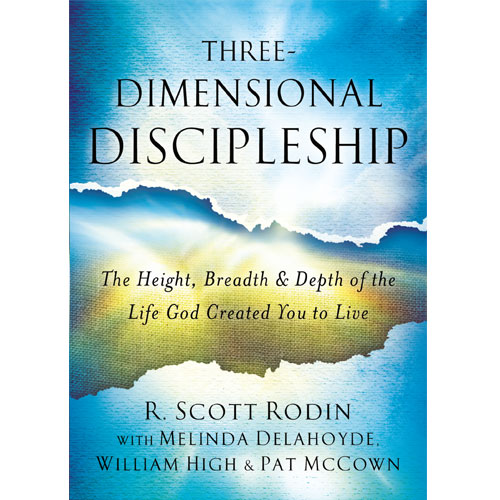The Danger of Confusing Reformation with Accommodation

For the past nine years, this blog has been dedicated to helping the body of Christ embrace the call to be faithful stewards in a world of owners. We have written frequently on the contrast between the worldview of an owner vs. the calling of a steward. I pray that our words have been helpful and inspiring.
I must tell you that my heart is broken over the way that a spirit of ownership is driving leaders of many churches to the mistaken belief that their penchant for cultural accommodation is simply part of the ongoing reformation of the church.
Owner leaders are trying desperately to shove the square peg of cultural conformity through the round hole of Spirit-led reformation. The two could not be more diametrically opposed, and we must start pointing that out with clarity and boldness.
The phrase ecclesia reformata, semper reformanda (the church reformed, always reforming) is an important reminder that under the guiding hand of the Holy Spirit, the church of Jesus Christ must always be ‘always reforming’. This phrase was coined to challenge the church to stay true to its mission. Robert Godfrey writes,
“They [Reformed pietists of the Dutch Second Reformation] saw the great danger of their day not as false doctrine or superstition or idolatry, but as formalism. The danger of formalism is that a church member could subscribe to true doctrine, participate in true worship in a biblically regulated church, and yet still not have true faith. As Jesus had warned against the Pharisees of His day, citing the prophet Isaiah, “This people honors me with their lips, but their heart is far from me” (Matt. 15:8). The part of religion that always needs reforming is the human heart. It is vital religion and true faith that must be constantly cultivated. Formalism, indifferentism, and conformism must all be vigorously opposed by a faithful ministry.”[1]
We need to hear this word clearly. The call for the ongoing reformation of the church is a warning against faith that focuses on the externals and does not call people to radical, transformational faith in Jesus. It speaks against every attempt at conformism that undermines the radical nature of the Gospel. The work of reformation requires repentance, a thirst for holiness and the willingness to take up our cross and follow Jesus. (Luke 14:27) It does not speak to the church becoming more ‘relevant’, or ‘seeker friendly’ or ‘culturally acceptable’. Indeed, these were the threats against which the potent phrase ecclesia reformata, semper reformanda was meant to challenge.
Yet today misguided leaders confuse this clarion call to unequivocal discipleship and devotion with the desire that the church change its doctrines to accommodate the culture. Owner leaders insist that we must read Scripture through the lens of modern science and psychology – or better, not read it seriously at all. Instead, they encourage us to turn more to commentaries and popular authors to tell us what we want to hear. Their goal is to make the church relevant, inviting, and safe. And this is all done under the delusion that it is a natural part of an ever-reforming church.
To set out the stark differences between the reforming church and the accommodating church, let’s consider Luther’s three famous tenets of the Reformation as a guide.
Reformation always directs people to a deeper engagement with scripture, all of it! The great reformer, Martin Luther championed the phrase sola scriptura – Scripture alone. He stood at the Diet of Worms in defiance of the Diet’s assembly which included the greatest papal authorities and power elites of his time There he held his ground on one powerful proclamation – “Here I stand, I will not recant unless it is shown to me in the scriptures that I have erred, so help me God.” Reformers stand on the word, the authority, and the sufficiency of Scripture.
Accommodation seeks to undermine the authority of scripture and replace it with what is more palatable and acceptable to the wider culture. In contrast to Luther’s ‘Here I stand’, owner leaders grasp for control of how the Bible should be read and understood, bending it toward their own pre-suppositions. In doing so, they re-enact the sin of Eden when the enemy posed the question to Eve, “Did God really say?” (Genesis 3:1). We must be on guard for every effort by misguided owner leaders to deflect us from the clear message of God’s word.
Luther’s second tenet that undergirded the Reformation was sola fide – faith alone. Reformation faith always brings people to their knees in repentance, acknowledging the depth of their sin and ignites in them a passionate pursuit of holiness through the work of the Holy Spirit. Faith alone means we seek nothing more than an uncompromising trust in Jesus Christ and an unrelenting desire to be obedient to everything he commands. A reforming church will be a church built on a single-minded devotion to the object of our faith – Christ alone.
Accommodation throws people back on themselves, affirming them in their sin rather than leading them to the transforming power of Christ who overcame their sin. Most often, the ideas of sin, total depravity, contrition, and repentance are expunged from the vocabulary of the conformists. They might make people feel uncomfortable and the church sound judgmental. Rather than ‘faith alone’ conformist doctrine would have us look to our experience, our desire to feel good about ourselves and affirm the choices we have made accordingly. The object of our devotion shifts from Christ alone to our own pursuit of happiness, and how Jesus can help us experience it.
Luther’s third tenet was sola gratia – grace alone. Borrowing Dietrich Bonhoeffer’s phrase, reformation preaches ‘costly grace’. “Costly grace is the gospel which must be sought again and again, the gift which must be asked for, the door at which a man must knock. Such grace is costly because it calls us to follow, and it is grace because it calls us to follow Jesus Christ. It is costly because it costs a man his life and it is grace because it gives a man the only true life. Costly grace is the sanctuary of God; it has to be protected from the world and not thrown to the dogs. Costly grace confronts us as a gracious call to follow Jesus, it comes as a word of forgiveness to the broken spirit and the contrite heart.”[2]
Accommodation is the preaching of cheap grace, grace that costs us nothing. Bonhoeffer again, “Cheap grace is the preaching of forgiveness without requiring repentance, baptism without church discipline, communion without confession, absolution without contrition. Cheap grace is grace without discipleship, grace without the cross, grace without Jesus Christ, living and Incarnate. Cheap grace is not the kind of forgiveness of sins which frees us from the toils of sin. Cheap grace is the grace we bestow on ourselves.”[3]
Today we are facing a rise of owner leaders who are leading their churches in the way of accommodation under the guise that this is what it means for the church to be ever reforming. This is a lie. It is a grand distortion the enemy is using to divide the body of Christ, dilute its power, distort its mission, and destroy its witness. As steward leaders, we must stand against this deception with the full force of the truth of the gospel.
If there was ever a time when the church needed to stand firm on the three tenets of the Reformation – scripture alone, faith alone and grace alone – it is now.
Please join us in this important work.
[1] https://www.ligonier.org/learn/articles/what-does-semper-reformanda-mean
[2] Dietrich Bonhoeffer, The Cost of Discipleship. (MacMillan: 1957). Pp. 38-39.
[3] Ibid, p. 38-39.





